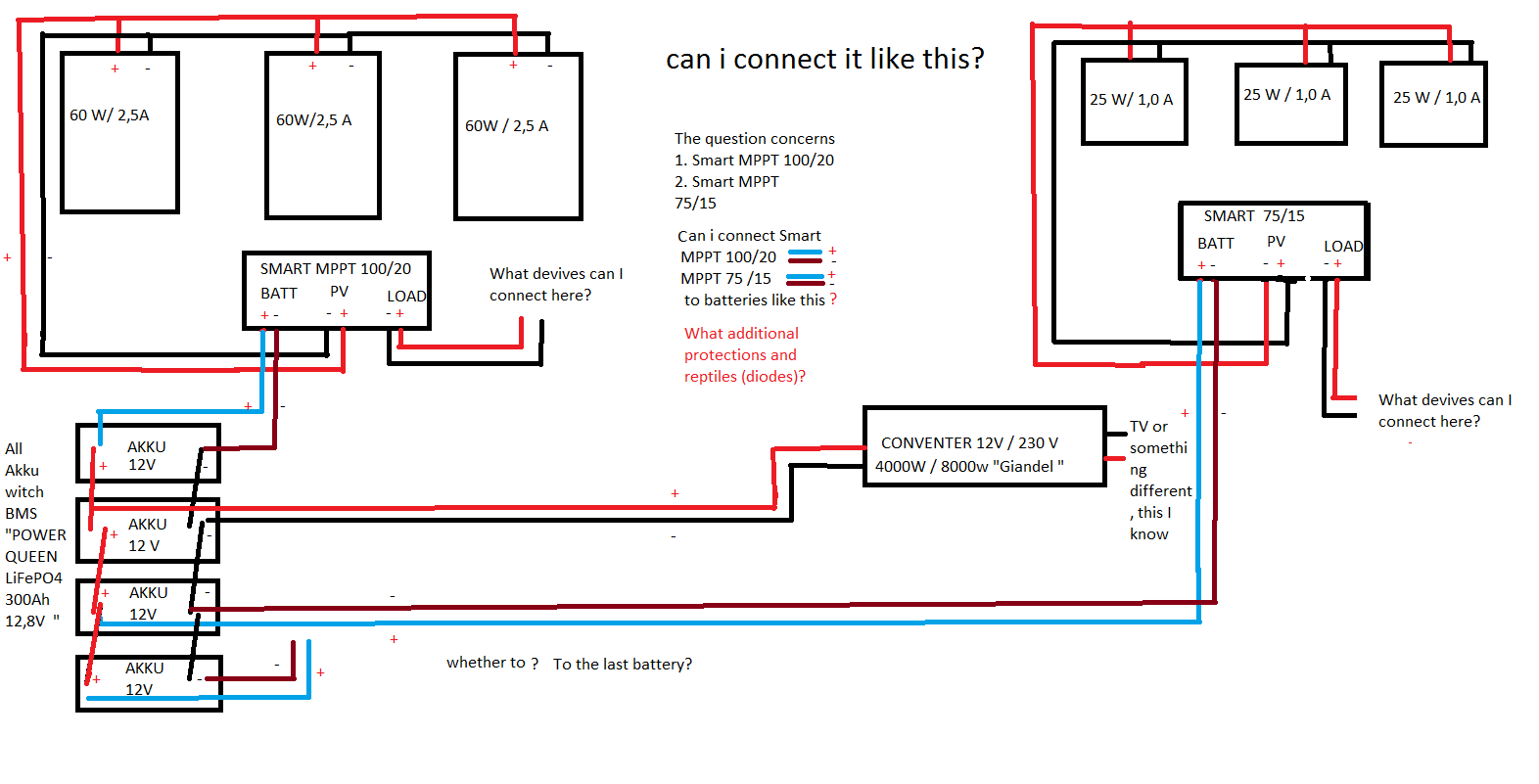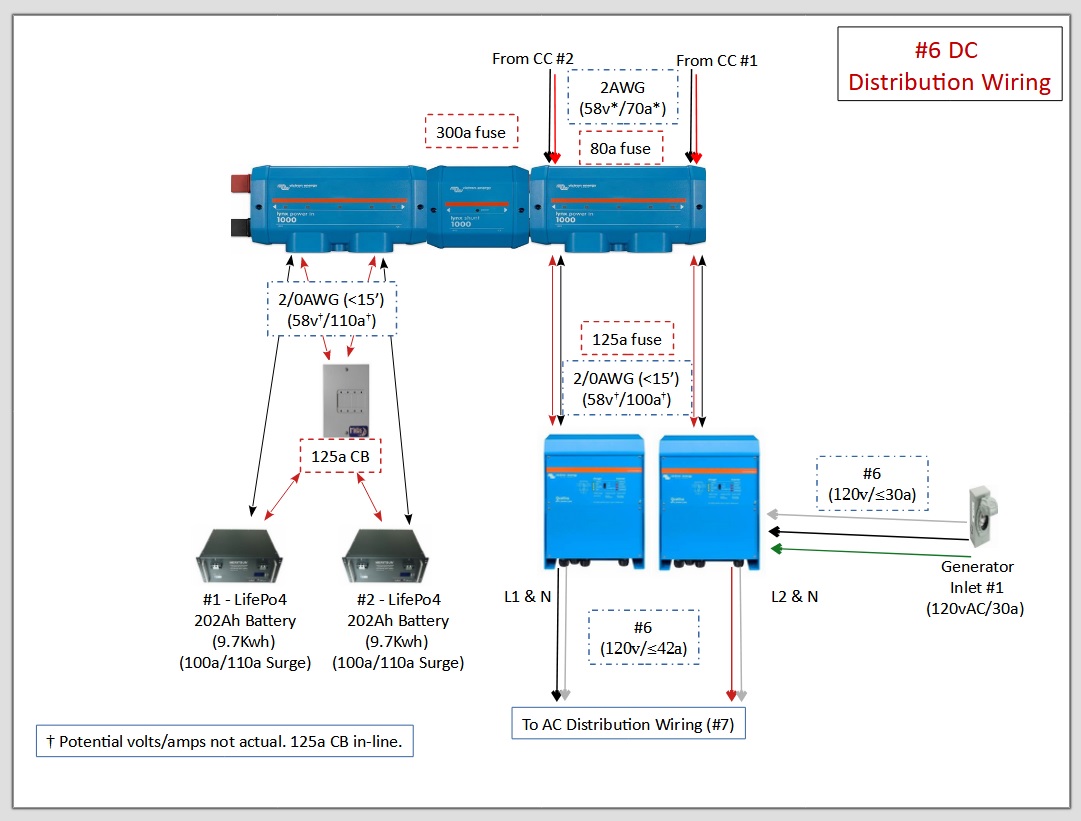
The number of solar panels is more , this is just a pictorial representation of the question. For Smart MPPT 100/20 ( 8*60W or 6* 60 W / 3,0 A ,connected in parallel ) not more than 20 A .For Smart MPPT 75/15 ( 8*15W / 1.0A connected in parallel ) not more than 15 A. I will calculate the power of solar panels here, I do not need help in this matter.
The main question is can I connect Smatr MPPT 100/20 and Smatr Mppt 75/15 to such batteries ( connected in parallel )? (see diagram) . Theoretically : The first battery (connected in parallel) is charged with the Smart MPPT 100/20 and the third or fourth with the Smart MPPT 75/15. The 12v/230v converter draws power from the middle battery (connected to the second or third battery). So, the path of current draw to the converter from the batteries is shorter and the path of charging the batteries is optimal.
Is this solution correct? Will there be interference between Smart MPTT? Or what protections should be added to the wires (diodes)?
I don't want answers like "get yourself an inverter or a bigger Smart MPPT, like 5000/500" Please don't tell me watts and amps,I know how to add Amps or Volts. The main question is, is it possible to connect two Smart MPPTs to the batteries? And possibly what diodes to use (reverse current, battery discharge, etc.)

